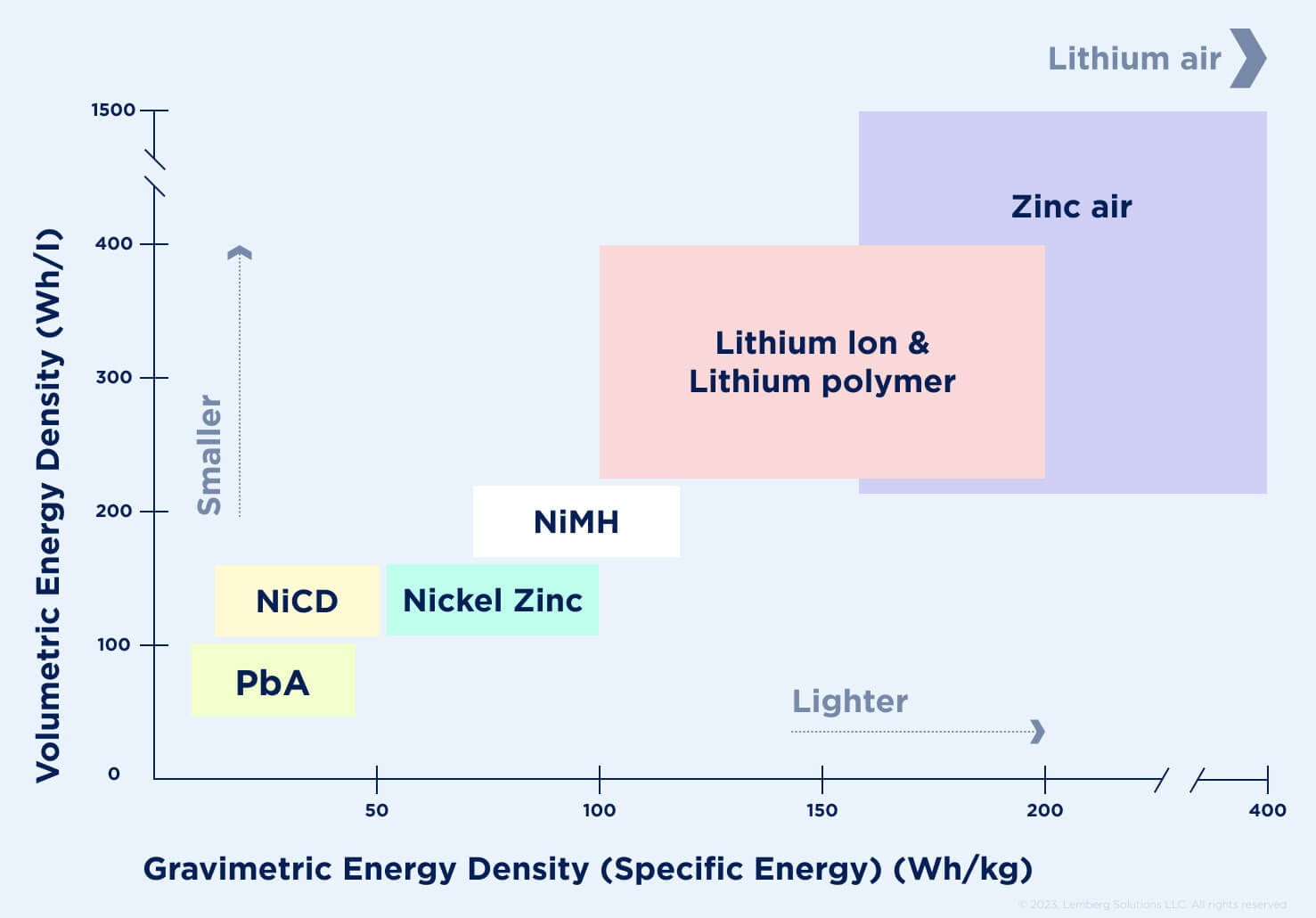To fix an overcharged battery, first, remove it from the charger promptly. Next, allow it to cool down and then slowly discharge the excess power by using a lightbulb.
Overcharging can lead to reduced battery life and potential damage, but following these steps can help restore it to normal function. Having an overcharged battery can be frustrating and may lead to decreased efficiency. However, by following some simple steps, you can resolve this issue and extend the lifespan of your battery.
This article will provide you with practical advice on how to fix an overcharged battery, ensuring that your devices remain powered up and ready for use. Whether it’s your phone, laptop, or car battery, these tips will help you effectively address the problem and ensure smooth operations. So, let’s dive in and discover the best ways to tackle an overcharged battery.

Causes And Symptoms Of Overcharged Batteries
When it comes to electrical devices, a common problem that many users encounter is an overcharged battery. This occurrence can be frustrating and often leads to the deterioration of the battery’s lifespan and performance. To address this issue effectively, it is essential to understand the causes and symptoms of overcharged batteries.
Common Causes
A variety of factors can lead to overcharged batteries. By identifying these common causes, users can take preventative measures to avoid this issue altogether. Some of the primary causes include:
- Prolonged charging: Leaving the battery connected to a charger for an extended period can result in overcharging. This may occur when users leave devices plugged in overnight or disregarding charging time recommendations.
- Faulty charging systems: Using defective or malfunctioning charging systems can disrupt the charging process and lead to an overcharged battery. This includes damaged charger cables, faulty charging ports, or incompatible power sources.
- Inaccurate voltage regulation: Electrical devices rely on voltage regulators to control the amount of power supplied to the battery. If these regulators become faulty or fail to function properly, the battery can receive excessive voltage, resulting in overcharging.
Symptoms To Look Out For
Recognizing the signs of an overcharged battery is crucial in addressing the issue promptly and preventing further damage. Some common symptoms that indicate an overcharged battery include:
- Shortened battery life: An overcharged battery tends to have a significantly reduced lifespan. Users may notice that their devices require more frequent recharges or that the battery drains quickly after a full charge.
- Increased temperature: Overcharging can cause the battery to produce excess heat. Users may experience their device becoming warm to the touch during or after charging.
- Swelling or bulging: A telltale sign of overcharging is the physical deformation of the battery. An overcharged battery may exhibit swelling or bulging, indicating internal damage and an increased risk of leakage or explosion.
- Unreliable performance: Overcharged batteries often result in erratic performance of the device. Users may encounter unexpected shutdowns, screen freezing, or a lag in response time.
- Unusual battery behavior: An overcharged battery may display abnormal behavior, such as sudden drops in battery percentage, inaccurate battery level readings, or difficulty in holding a charge.
By being aware of these symptoms and taking immediate action, users can prevent further damage to the battery and ensure the longevity and efficiency of their devices.

Immediate Steps To Take When Dealing With An Overcharged Battery
When dealing with an overcharged battery, it’s crucial to act fast to prevent potential damage and ensure the safety of your equipment. Here are the immediate steps you should take when you suspect an overcharged battery:
Isolate The Battery
First, isolate the overcharged battery from any connected devices or equipment to prevent further damage. This can help in containing the issue and avoiding any potential hazards.
Disconnect From Power Source
Disconnect the battery from the power source immediately to halt the charging process. This will help prevent the battery from becoming more overcharged and mitigate potential risks of overheating or explosion.
Check For Damage
Inspect the overcharged battery for any signs of physical damage or deformation. Look for bulging, leakage, or unusual odors, as these could indicate an unsafe condition that requires proper handling.
Methods To Fix An Overcharged Battery
Fixing an overcharged battery can be done by utilizing methods such as discharging the battery, using a voltage regulator, or consulting a professional for repair. It is important to address the issue promptly to avoid damaging the battery and ensure its longevity.
Allow Natural Discharge
Letting the battery discharge on its own is one way to correct overcharging issues.
Use A Trickle Charger
Employing a trickle charger can gradually recharge the battery, avoiding quick overload.
Recondition The Battery
Revitalize the battery through reconditioning to extend its life span.
Replace The Battery
If all else fails, consider substituting the overcharged battery with a new one.
Prevention Tips To Avoid Overcharging Batteries
To prevent overcharging batteries, always monitor the charging process and avoid leaving batteries connected to the charger longer than necessary. Use smart chargers with auto shutoff features and follow manufacturer recommendations for optimal battery care. Regularly check battery health to catch overcharging issues early on and avoid damaging the battery.
Overcharging your battery can lead to reduced battery life, performance issues, and even the risk of exploding. Therefore, it’s important to take precautionary measures to prevent overcharging. Here are a few tips that can help you avoid overcharging your batteries and ensure their longevity.
Use A Battery Charger With Auto Shut-off Feature
When it comes to charging your batteries, investing in a charger with an auto shut-off feature is essential. This smart feature automatically stops charging the battery once it reaches its full capacity, preventing overcharging. Be sure to choose a charger that is compatible with your battery type and has this useful feature.
Set Charging Time Limits
To avoid overcharging, it’s crucial to set specific charging time limits for your batteries. This ensures that they are not left connected to a power source for an extended period. Consult the manufacturer’s instructions or conduct some research to determine the ideal charging time for your particular battery. By adhering to these time limits, you can prevent overcharging and prolong the life of your battery.
Monitor Charging Progress
Monitoring the charging progress of your battery is an effective way to avoid overcharging. Keep an eye on the charger’s display or indicator lights to track the battery’s charging level. Once it reaches the recommended capacity or nears 100%, disconnect the charger promptly. This simple practice helps ensure that your battery receives just the right amount of charge and prevents overcharging.
By following these prevention tips, you can protect your battery from overcharging and enjoy its long-lasting performance. Remember, a little caution can go a long way in preserving the health and longevity of your batteries.
Common Mistakes To Avoid When Fixing An Overcharged Battery
Fixing an overcharged battery requires proper knowledge and caution to prevent any accidents or further damage to the battery. However, many people make some common mistakes that can hinder the repair process and even worsen the situation. In this section, we will discuss the common mistakes you should avoid when fixing an overcharged battery.
Using Incorrect Charging Equipment
Using incorrect charging equipment is one of the most common mistakes people make when attempting to fix an overcharged battery. It is essential to use the right charger with the appropriate voltage and charging capacity. Using a charger with higher voltage or incorrect specifications can damage the battery cells, leading to irreversible damage. Therefore, always double-check the charger’s compatibility with your battery before initiating the charging process.
Failing To Disconnect Power Source
Another common mistake people often overlook is failing to disconnect the power source before fixing an overcharged battery. Whether you are using a charging device or jump-starting from another vehicle, it is crucial to disconnect the power source to avoid any electrical surges or short circuits. Failure to do so can not only jeopardize your safety but also increase the risk of damaging the battery further. Always remember to disconnect the power source before starting any repair or charging process.
Neglecting Safety Precautions
Safety precautions play a vital role in ensuring a successful battery repair. Neglecting safety precautions can lead to accidents, injuries, or even electrocution. Some essential safety measures to follow include wearing protective gloves, goggles, and clothing to shield yourself from any corrosive chemicals or battery acid. Additionally, it is crucial to work in a well-ventilated area and avoid smoking or having open flames nearby. Always prioritize safety and follow the recommended guidelines to protect yourself and others during the battery repair process.
To summarize, when fixing an overcharged battery, it is important to avoid common mistakes that can hinder the repair process and potentially cause further damage. Using incorrect charging equipment, failing to disconnect the power source, and neglecting safety precautions are common errors that should be avoided at all costs. By being cautious and following the recommended guidelines, you can increase the chances of a successful repair and ensure your safety throughout the process.
Frequently Asked Questions For How To Fix An Overcharged Battery
Can A Battery Recover From Overcharging?
No, a battery cannot recover from overcharging. Overcharging can damage the battery irreversibly and reduce its lifespan.
Is An Overcharged Battery Ruined?
An overcharged battery can be ruined due to increased heat and stress on the components. Overcharging can lead to reduced lifespan and performance. Inspect the battery for damage and replace if necessary. Keep the battery correctly charged to prevent overcharging.
What Are The Symptoms Of An Overcharged Battery?
Overcharged battery symptoms include increased electrolyte levels, excessive heat, distorted battery case, and bulging or leaking battery cells. The battery may also fail to hold a charge, exhibit decreased performance, and emit a rotten egg smell. Promptly address overcharging to prevent damage and safety hazards.
How Do You Fix An Alternator Overcharging Battery?
To fix an alternator overcharging the battery, you can follow these steps: 1. Disconnect the negative battery cable. 2. Inspect the alternator wiring for any loose or damaged connections. 3. Check the voltage regulator for any malfunctions or defects. 4. Replace any faulty components if necessary.
5. Reconnect the battery cable and test the alternator to ensure it is no longer overcharging the battery.
Conclusion
Fixing an overcharged battery requires proper handling and safety precautions. By following the steps outlined in this blog post, you can effectively revive your overcharged battery and prolong its lifespan. Remember to regularly monitor the charging process and implement preventive measures to avoid overcharging in the future.
With the right knowledge and tools, anyone can rectify this common issue and enjoy a fully functional battery once again.

